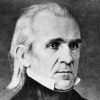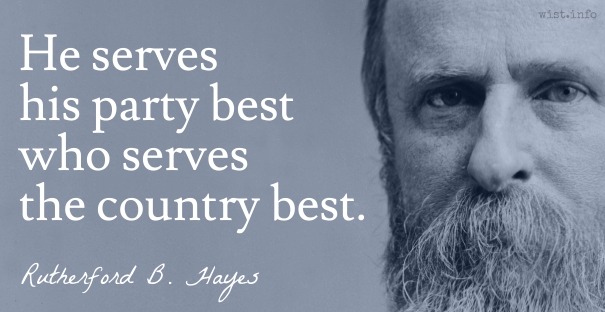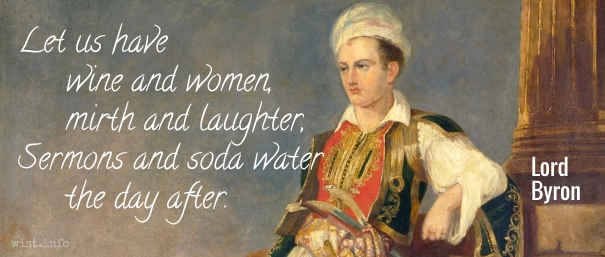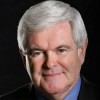We are to have a tiny party here tonight. I hate tiny parties, they force one into constant exertion.
Quotations about:
party
Note not all quotations have been tagged, so Search may find additional quotes on this topic.
O my brave men! stout hearts of mine!
who often have suffered worse calamities with me.
let us now drown your cares in wine.
Tomorrow we venture once again upon the boundless sea.[O fortes peioraque passi
mecum saepe viri, nunc vino pellite curas;
cras ingens iterabimus aequor.]Horace (65-8 BC) Roman poet and satirist [Quintus Horacius Flaccus]
Odes [Carmina], Book 1, # 7, l. 30ff (1.7.30-32) (23 BC) [tr. Alexander (1999)]
(Source)
To L. Munatius Plancus. Quoting Teucer to his crew on his being exiled from Salamis.
Quoted in Montaigne, 3.13 "On Experience" (immediately following this).
(Source (Latin)). Alternate translations:
Brave Spirits, who with me have suffer'd sorrow,
Drink cares away; wee'l set up sails to-morrow.
[tr. "Sir T. H.," Brome (1666)]
Cheer, rouze your force,
For We have often suffer'd worse:
Drink briskly round, dispell all cloudy sorrow,
Drink round, Wee'l plow the Deep to-morrow.
[tr. Creech (1684)]
Hearts, that have borne with me
Worse buffets! drown today in wine your care;
To-morrow we recross the wide, wide sea!
[tr. Conington (1872)]
O gallant heroes, and often my fellow-sufferers in greater hardships than these, now drive away your cares with wine: to-morrow we will re-visit the vast ocean.
[tr. Smart/Buckley (1853)]
Now, ye brave hearts, that have weather'd
Many a sorer strait with me,
Chase your cares with wine, — to-morrow
We shall plough the mighty sea!
[tr. Martin (1864)]
Brave friends who have borne with me often
Worse things as men, let the wine chase to-day every care from the bosom,
To-morrow -- again the great Sea Plains.
[tr. Bulwer-Lytton (1870)]
My comrades bold, to worse than this
Inured, to-morrow brave the vasty brine,
But drown to-day your cares in wine.
[tr. Gladstone (1894)]
O brave friends, who have oft with your leader
Suffer'd worse trials, cheer up, let sorrows dissolve in the wine-cup,
We will try the vast ocean to-morrow.
[tr. Phelps (1897)]
O brave men, often worse things ye with me
Have borne, now drive with wine your cares away,
To-morrow we will sail the wide sea once again.
[tr. Garnsey (1907)]
To-night with wine drown care,
Friends oft who've braved worse things with me than these;
At morn o'er the wide sea once more we'll fare!
[tr. Marshall (1908)]
O ye brave heroes, who with me have often suffered worse misfiprtunes, now banish care with wine! To-morrow we will take again our course over the mighty main.
[tr. Bennett (Loeb) (1912)]
With wine now banish care;
Worse things we've known, brave hearts; once more
we'll plough the main tomorrow morn.
[tr. Mills (1924)]
You who have stayed by me through worse disasters,
Heroes, come, drink deep, let wine extinguish our sorrows.
We take the huge sea on again tomorrow.
[tr. Michie (1964)]
O my brave fellows who have gone through worse
Than this with me, now with the help of wine
Let's put aside our troubles for a while.
Tomorrow we set out on the vast ocean.
[tr. Ferry (1997)]
O you brave heroes, you
who suffered worse with me often, drown your cares with wine:
tomorrow we’ll sail the wide seas again.
[tr. Kline (2015)]
May I join you in the doghouse, Rover?
I wish to retire till the party’s over.Ogden Nash (1902-1971) American poet
“Children’s Party,” ll. 1-2, Many Long Years Ago (1945)
(Source)
A banquet is probably the most fatiguing thing in the world except ditch-digging.
Mark Twain (1835-1910) American writer [pseud. of Samuel Clemens]
Dictation (1907-07-30)
(Source)
In Benjamin Griffin and Harriet Elinor Smith, eds., Autobiography of Mark Twain, Vol. 3 (pub. 2015).
Also recorded in Bernard DeVoto, ed., Mark Twain in Eruption, "The Last Visit to England," ch. 1 "White and Red" (1940). DeVoto identifies it coming from the dictations of July-August 1907.
At every party there are two kinds of people — those who want to go home and those who don’t. The trouble is, they are usually married to each other.
Ann Landers (1918-2002) American advice columnist [pseud. for Eppie Lederer]
“Ask Ann Landers,” syndicated column (1991-06-19)
(Source)
Where a source for this is cited, it is at the above date and in International Herald Tribune, presumably as part of her syndicated column. The quotation is included in a rotating sidebar element at Landers' website, but cannot be found in search on the site.
But if they should seek only revels and mistresses in wine and in the dice, they might be so despaired of indeed, but still they would be endurable. But who can endure this, that indolent fellows should lie in wait for the bravest men, the most foolish for the most prudent, the drunken for the sober, the sleeping for those lying awake? Who, reclining at banquets, embracing unchaste women, exhausted with wine, gorged with food, crowned with wreaths, besmeared with perfumes, debilitated by debaucheries, in their conversations belch out the slaughter of the good and the conflagrations of the city.
[Quod si in vino et alea comissationes solum et scorta quaererent, essent illi quidem desperandi, sed tamen essent ferendi: hoc vero quis ferre possit, inertis homines fortissimis viris insidiari, stultissimos prudentissimis, ebrios sobriis, dormientis vigilantibus? Qui mihi accubantes in conviviis, complexi mulieres impudicas, vino languidi, conferti cibo, sertis redimiti, unguentis obliti, debilitati stupris eructant sermonibus suis caedem bonorum atque urbis incendia.]
Marcus Tullius Cicero (106-43 BC) Roman orator, statesman, philosopher
Orationes in Catilinam [Catilinarian Orations], No. 2, ch. 5 / § 10 (2.5.10) (63-11-09 BC) [tr. Mongan (1879)]
(Source)
Excoriating the wastrel followers of Catelline.
(Source (Latin)). Alternate translations:
Now if amidst their Drinking and Gaming, they only regarded Riot and Whoring, they were indeed little hopeful, but yet tolerable. But who can endure this, that Cowards should lay wait for the Valiant, Fools for the Wise, Sots for the Sober, Sluggards for the Vigilant? That sit me at Treats with their Misses in their Laps, their Brains swimming with Wine, Stomachs over charged with Meat, Garlands on their Heads, daubed with Sweet Oyntment, weakned with Whoring, and belch out in their talk the slaughter of the honest Party and the firing of the City.
[tr. Wase (1671)]
But if debauchery and the gratification of inordinate desires had been their only object, they might still deserve some lenity; their gaming-tables, their banquets, and their harlots might be in some degree forgiven: the men, it is true, would have been lost to every virtue, but the commonwealth would have been safe. The case is now very different: that cowards should lie in ambush for the brave; that fools should lay snares for the wise and good; that sots and drunkards should plot against the sober, and sluggards combine against the vigilant; this who can bear? And it is by such despicable traitors that the city is thrown into consternation; by a set of abandoned wretches, lolling at ease on their convivial couches, caressing their strumpets, intoxicated with liquor, crowned with garlands, sweetened with perfumes, and enervated by their vicious pleasures. Men do that description take upon them to reform the state; over their cups they disgorge their treasonable designs, and in bitter execrations devote us all to destruction.
[tr. Sydney (1795)]
But if in their drinking and gambling parties they were content with feasts and harlots, they would be in a hopeless state indeed; but yet they might be endured. But who can bear this, -- that indolent men should plot against the bravest, -- drunkards against the sober, -- men asleep against men awake, -- men lying at feasts, embracing abandoned women, languid with wine, crammed with food, crowned with chaplets, reeking with ointments, worn out with lust, belch out in their discourse the murder of all good men, and the conflagration of the city?
[tr. Yonge (1856)]
But if in wine and dice they might seek only revellings and prostitutes, they would be to be despaired of indeed; but yet they would be to be borne. But who may be able to bear this, (for) inactive men to lie in wait for the bravest men, the most foolish for the most prudent, the drunken for the sober, the sleeping for the watching? Who (for me), reclining in banquets, having embraced unchaste women, languid with wine, filled with food, crowned with garlands, besmeared with perfumes, weakened with debaucheries, belch out in their discourses the slaughter of the good, and the conflagrations of the city.
[tr. Underwood (1885)]
But if in wine and dice they were seeking only street revellings and prostitutes, they must be despaired of indeed; but yet they must be endured. But who many be able to endure this, (that) idle men [fellows] to [should] lie in wait for the bravest men, the most foolish for the most prudent, the drunken for the sober, the sleeping fo the watchin? Who I say, reclining in banquets, having embraced unchaste women, sluggish with wine, crammed with food, wreathed with garlands, besmeared with perfumes, weakened with debaucheries, belch forth in their discourses the slaughter of the good, and the conflagrations of the city.
[tr. Dewey (1916)]
Now, if during their drinking and gambling bouts they merely caroused and whored, they would be hopeless enough cases, it is true, yet they could be put up with all the same. But what is unbearable is that these spiritless, stupid, drunken, somnolent brutes should be plotting to cut down citizens who are pre-eminent for their courage and wisdom and sobriety and energy. For as these individuals recline at their banquets and embrace their harlots, dazed by wine and stuffed by food, garlanded with wreathes and smothered with scents and riddled with every sort of lewdness, the vomit which issues from their mouths consists of talk about massacring every loyal citizen and burning the city to the ground.
[tr. Grant (1960)]
There is this disadvantage to be endured in reading books by members of some party or faction, that they do not always give us the truth. Facts are distorted, opposing points of view are not stated with sufficient force or with complete accuracy; and the most longsuffering reader must tire at last of such a great number of harsh and insulting terms used against one another by these earnest men, who make a personal quarrel out of a doctrinal point or a disputed fact. The peculiar thing about these works is that they deserve neither the prodigious vogue they enjoy for a while nor the profound neglect into which they lapse when, passions and divisions having died down, they become like last year’s almanacs.
[L’on a cette incommodité à essuyer dans la lecture des livres faits par des gens de parti et de cabale, que l’on n’y voit pas toujours la vérité. Les faits y sont déguisés, les raisons réciproques n’y sont point rapportées dans toute leur force, ni avec une entière exactitude; et, ce qui use la plus longue patience, il faut lire un grand nombre de termes durs et injurieux que se disent des hommes graves, qui d’un point de doctrine ou d’un fait contesté se font une querelle personnelle. Ces ouvrages ont cela de particulier qu’ils ne méritent ni le cours prodigieux qu’ils ont pendant un certain temps, ni le profond oubli où ils tombent lorsque, le feu et la division venant à s’éteindre, ils deviennent des almanachs de l’autre année.]
Jean de La Bruyère (1645-1696) French essayist, moralist
The Characters [Les Caractères], ch. 1 “Of Works of the Mind [Des Ouvrages de l’Esprit],” § 58 (1.58) (1688) [tr. Stewart (1970)]
(Source)
Some translators suggests this references polemical writings between the Jesuits and Jansenists.
(Source (French)). Alternate translations:
We have this disadvantage in reading Books written by Men of Party and Cabal: We seldom meet with the Truth in 'em; Actions are there disguised, the reasons of both sides are not alledg'd with all their force, nor with an entire exactness. He who has the greatest patience must read abundance of hard, injurious reflexions on the gravest men, with whom the Writer has some personal quarrel about a point of Doctrine, or matter of Controversie. These Books are particular in this, that they deserve not the prodigious Sale they find at their first appearance, nor the profound Oblivion that attends 'em after∣wards: When the fury and division of these Authors cease, they are forgotten, like an Almanack out of date.
[Bullord ed. (1696)]
We have this Inconveniency in reading Books written by Men of Party and Cabal, we seldom meet Truth in them; Actions are there disguis'd, the Reasons of both sides not alledg'd with all their force, nor with an entire exactness. He who has the greatest Patience, must read abundance of hard and scurrilous Reflections on the gravest Men, who make a personal Quarrel about a Point of Doctrine, or Matter of Controversy. These Books are particular in this, that they deserve not the prodigious Sale they find at their first appearance, nor the profound Oblivion which attends 'em afterwards. When the Fury and Division of Parties cease, they are forgotten like Almanacks out of date.
[Curll ed. (1713)]
This is the certain disadvantage of reading Books written by Men of Party and Cabal, Truth is not in them; Actions are disguised, the Reasons of both sides are not alledged with all their force, nor with an entire exactness. And, what no patience can bear, he must read abundance of scurrilous Reflections tost to and fro by grave Men, making a personal Quarrel about a Point of Doctrine, or controverted Fact. These Books are particular in this, that they deserve not the prodigious Sale they find at their first appearance, nor the profound Oblivion that attends them afterwards: When the Ebullitions of Parties subside, they are forgotten like an Almanack out of date.
[Browne ed. (1752)]
The disadvantage of reading books written by people belonging to a certain party or a certain set is that they do not always contain the truth. Facts are disguised, the arguments on both sides are not brought forward in all their strength, nor are they quite accurate; and what wears out the greatest patience is that we must read a large number of harsh and scurrilous reflections, tossed to and fro by serious-minded men, who consider themselves personally insulted when any point of doctrine or any doubtful matter is controverted. Such works possess this peculiarity, that they neither deserve the prodigious success they have for a certain time, nor the profound oblivion into which they fall afterwards, when the rage and contention have ceased, and they become like almanacks out of date.
[tr. Van Laun (1885)]
Traditionally, a luncheon is a lunch that takes an eon.
Judith Martin (b. 1938) American author, journalist, etiquette expert [a.k.a. Miss Manners]
“Miss Manners,” syndicated column (1982-04-18)
(Source)
Reprinted in Miss Manners' Guide for the Turn-of-the-Millennium, Part 6 "Genuine Social Life," "Social Occasions" (1989). Often incorrectly attributed to Miss Manners' Guide to Excruciatingly Correct Behavior (1983).
I have just now come from a party where I was its life and soul; witticisms streamed from my lips, everyone laughed and admired me, but I went away — yes, the dash should be as long as the radius of the earth’s orbit ——————————— and wanted to shoot myself.
Søren Kierkegaard (1813-1855) Danish philosopher, theologian
Journal (1836-04) [tr. Hannay (1982)]
(Source)
Papieren: 1 A 161; KJN: NB 2:53. Alternate translations:
I have just returned from a party of which I was the life and soul; wit poured from my lips, everyone laughed and admired me -- but I went away -- and the dash should be as long as the earth's orbit ——————————— and wanted to shoot myself.
[tr. Dru (1938)]
I have just come back from a party where I was the life and soul. Witticisms flowed from my lips. Everyone laughed and admired me -- but I left, yes, that dash should be as long as the radii of the earth's orbit ——————————— and wanted to shoot myself.
[tr. Hannay (1996)]
One cannot have too large a party. A large party secures its own amusement.
No one would ever come into a mixed party with spectacles on his nose, if he did but know that at once we women lose all pleasure in looking at him or listening to what he has to say.
[Es käme niemand mit der Brille auf der Nase in ein vertrauliches Gemach, wenn er wüßte, daß uns Frauen sogleich die Lust vergeht ihn anzusehen und uns mit ihm zu unterhalten.]
Johann Wolfgang von Goethe (1749-1832) German poet, statesman, scientist
Elective Affinities [Die Wahlverwandtschaften], Part 2, ch. 5, “From Ottilie’s Journal [Aus Ottiliens Tagebuche]” (1809) [Niles ed. (1872)]
(Source)
(Source (German)). Alternate translation:
No one would come into a private room wearing spectacles if he realized that we women at once lose all desire to look at or talk with him.
[tr. Hollingdale (1971)]
Aper’s teetotal. So what? I commend
Sobriety in a butler, not a friend.[Siccus, sobrius est Aper; quid ad me?
Servum sic ego laudo, non amicum]Martial (AD c.39-c.103) Spanish Roman poet, satirist, epigrammatist [Marcus Valerius Martialis]
Epigrams [Epigrammata], Book 12, epigram 30 (12.30) (AD 101) [tr. Michie (1972)]
(Source)
"On Aper." (Source (Latin)). Alternate translations:
Tom never drinks: that I should much commend
In Tom my coachman, but not Tom my friend.
[tr. Hay (1755)]
Frugal and sober, I commend
In both, my servant; not my friend.
[tr. Elphinston (1782), 12.114]
Ned is a sober fellow, they pretend --
Such would I have my coachman, not my friend.
[tr. Hoadley (fl. 18th C), §245]
Aper is abstemious and sober. What is that to me? For such a quality I praise my slave, not my friend.
[tr. Bohn's Classical (1859)]
"Now Aper is a sober man;
He never had a jag on."
Well, what of that? I wish my slaves,
Not friends, to hate a flagon.
[tr. Nixon (1911), "No Recommendation"]
Aper is abstemious, sober: what is that to me? A slave I praise so, not a friend.
[tr. Ker (1919)]
He's sober and abstemious? One commends
These qualities in slave, but not in friends.
[tr. Pott & Wright (1921)]
You're always sober, never drunk.
Such temperance is fine
In servants and domestics, but
Not in a friend of mine.
[tr. Marcellino (1968)]
Aper is dry and sober. What is that to me? I commend a slave so, not a friend.
[tr. Shackleton Bailey (1993)]
He's a clean and sober fellow?
Well, what's that mean to me?
He doesn't seem potential friend,
More like an employee.
[tr. Ericsson (1995)]
Aper is dry and sober. What good is that to me? It’s what I praise a slave for, not a friend!
[tr. @aleatorclassicus (2013)]
So what if Aper's sober! I commend
abstinence in a slave, not in a friend.
[tr. McLean (2014)]
Drink, the social glue of the human race. Probably in the beginning we could explain ourselves to our close family members with grunts, muttered syllables, gestures, slaps, and punches. Then when the neighbors started dropping in to help harvest, stomp, stir, and drink the bounty of the land, after we’d softened our natural suspicious hostility with a few stiff ones, we had to think up some more nuanced communications, like words. From there it was a short step to grammar, civil law, religion, history, and “The Whiffenpoof Song.”
By Hercules, I prefer to be wrong with Plato … than to be right with those idiots.
[Errare mehercule malo cum Platone … quam cum istis vera sentire.]
Marcus Tullius Cicero (106-43 BC) Roman orator, statesman, philosopher
Tusculan Disputations [Tusculanae Disputationes], Book 1, ch. 17 (1.17) / sec. 39 [Auditor] (45 BC) [tr. @sententiq (2012)]
(Source)
Original Latin. Alternate translations:
- "Had rather, I assure you, be mistaken with Plato ... than to be of their opinion in the right." [tr. Wase (1643)]
- "I had rather, so help me Hercules, be mistaken with Plato ... than be in the right with them." [tr. Main (1824)]
- "I would rather err, by Hercules, with Plato ... than to embrace the truth with those others." [tr. Otis (1839)]
- "I had rather, so help me Hercules! be mistaken with Plato ... than be in the right with those others." [tr. Yonge (1853)]
- "I would rather, by Hercules, err with Plato ... than hold the truth with those other philosophers." [tr. Peabody (1886)]
- "I would rather, so help me Hercules! be wrong with Plato ... than be right with all the rest of them." [tr. Black (1889)]
- "Believe me, I'd rather go wrong in the company of Plato ... than hold the right views with his opponents." [tr. Davie (2017)]
Oh, progeny playing by itself
Is a lonely little elf,
But progeny in roistering batches
Would drive St. Francis from here to Natchez.
Although in our country the Chief Magistrate must almost of necessity be chosen by a party and stand pledged to its principles and measures, yet in his official action he should not be the President of a part only, but of the whole people of the United States. While he executes the laws with an impartial hand, shrinks from no proper responsibility, and faithfully carries out in the executive department of the Government the principles and policy of those who have chosen him, he should not be unmindful that our fellow-citizens who have differed with him in opinion are entitled to the full and free exercise of their opinions and judgments, and that the rights of all are entitled to respect and regard.
James K. Polk (1795-1849) American lawyer, politician, US President (1845-1849)
Inaugural Address (4 Mar 1845)
(Source)
The one pervading evil of democracy is the tyranny of the majority, or rather of that party, not always the majority, that succeeds, by force or fraud, in carrying elections.
John Dalberg, Lord Acton (1834-1902) British historian
“Review of Sir Erskine May’s Democracy in Europe,” The Quarterly Review (Jan 1878)
(Source)
Drink and dance and laugh and lie,
Love, the reeling midnight through,
For tomorrow we shall die!
(But, alas, we never do.)
A successful party is a creative act, and creation is always painful.
Phyllis McGinley (1905-1978) American author, poet
“Party Line,” Ladies’ Home Journal (1962)
(Source)
Later reprinted in Sixpence in Her Shoe (1964).
If a political party does not have its foundation in the determination to advance a cause that is right and that is moral, then it is not a political party; it is merely a conspiracy to seize power.
Dwight David Eisenhower (1890-1969) American general, US President (1953-61)
Speech, Fourth Annual Republican Women’s National Conference, Washington, DC (6 Mar 1956)
(Source)
Look at the tyranny of party — at what is called party allegiance, party loyalty — a snare invented by designing men for selfish purposes — and which turns voters into chattels, slaves, rabbits, and all the while their masters, and they themselves are shouting rubbish about liberty, independence, freedom of opinion, freedom of speech, honestly unconscious of the fantastic contradiction; and forgetting or ignoring that their fathers and the churches shouted the same blasphemies a generation earlier when they were closing their doors against the hunted slave, beating his handful of humane defenders with Bible texts and billies, and pocketing the insults and licking the shoes of his Southern Master.
If I know your sect, I anticipate your argument.
Ralph Waldo Emerson (1803-1882) American essayist, lecturer, poet
“Self-Reliance,” Essays: First Series (1841)
(Source)
Let us have wine and women, mirth and laughter,
Sermons and soda water the day after.
I can’t think of a more wonderful thanksgiving for the life I have had than that everyone should be jolly at my funeral.
Lord Mountbatten (1900-1979) British statesman and naval officer (Louis Francis Albert Victor Nicholas Mountbatten, 1st Earl Mountbatten of Burma, b. Prince Louis of Battenberg)
(Attributed)
(Source)
Quoted in Richard Hough, Mountbatten (1980).
The statesman values principles more than measures, and measures more than party. I am afraid the politician reverses this rule, valuing his party most, measures next, and principles least.
James Freeman Clarke (1810-1888) American theologian and author
“Wanted, a Statesman!”, Old and New Magazine (Dec 1870)
(Source)
The difficulty about a politician, no matter how honest and well-intentioned he may be, is always this: that the matter of absolute importance in his mind, to which everything else must yield, is to carry the next election for his party.
James Freeman Clarke (1810-1888) American theologian and author
“Wanted, a Statesman!”, Old and New Magazine (Dec 1870)
(Source)
Every organization appears to be headed by secret agents of its opponents.
Robert Conquest (b. 1917) Anglo-American historian, diplomat, poet
“Conquest’s Second Law”
Attributed in Kingsley Amis, Memoirs (1991). Also known as "Conquest's Law of Organizations."Variants:
- "Every organisation behaves as if it is run by secret agents of its opponents."
- "The behavior of any organization can best be predicted on the assumption that it is headed by a secret cabal of its enemies."
An association of men who will not quarrel with one another is a thing which never yet existed, from the greatest confederacy of nations down to a town meeting or a vestry.
Thomas Jefferson (1743-1826) American political philosopher, polymath, statesman, US President (1801-09)
Letter to John Taylor (4 Jun 1798)
(Source)
Most Americans don’t live their lives solely as Democrats or Republicans or conservatives or liberals. Most Americans live their lives that are just a little bit late for something they have to do. Often it’s something they do not want to do, but they do it. Impossible things get done every day that are only made possible by the little, reasonable compromises.
In politics, again, it is almost a commonplace, that a party of order or stability, and a party of progress or reform, are both necessary elements of a healthy state of political life. […] Each of these modes of thinking derives its utility from the deficiencies of the other; but it is in a great measure the opposition of the other that keeps each within the limits of reason and sanity.
John Stuart Mill (1806-1873) English philosopher and economist
On Liberty, ch. 2 “Of the Liberty of Thought and Discussion” (1859)
(Source)
Ignorance maketh most Men go into a Party, and Shame keepeth them from getting out of it.
George Savile, Marquis of Halifax (1633-1695) English politician and essayist
“Of Parties,” Political, Moral, and Miscellaneous Thoughts and Reflections (1750)
(Source)
If a man has a genuine, sincere, hearty wish to get rid of his liberty, if he is really bent upon becoming a slave, nothing can stop him. And the temptation is to some natures a very great one. Liberty is often a heavy burden on a man. It involves that necessity for perpetual choice which is the kind of labor men have always dreaded. In common life we shirk it by forming habits, which take the place of self-determination. In politics party-organization saves us the pains of much thinking before deciding how to cast our vote. In religious matters there are great multitudes watching us perpetually, each propagandist ready with his bundle of finalities, which having accepted we may be at peace. The more absolute the submission demanded, the stronger the temptation becomes to those who have been long tossed among doubts and conflicts.
Oliver Wendell Holmes, Sr. (1809-1894) American poet, essayist, scholar
Elsie Venner, ch. 18 (1859)
(Source)
A crowd is not company; and faces are but a gallery of pictures; and talk but a tinkling cymbal, where there is no love.
Francis Bacon (1561-1626) English philosopher, scientist, author, statesman
“Of Friendship,” Essays, No. 27 (1625)
(Source)
On with the dance! let joy be unconfined;
No sleep till morn, when Youth and Pleasure meet
To chase the glowing Hours with flying feet.George Gordon, Lord Byron (1788-1824) English poet
Childe Harold’s Pilgrimage, Canto 3, st. 22 (1818)
(Source)
I am not a Federalist, because I never submitted the whole system of my opinions to the creed of any party of men whatever in religion, in philosophy, in politics, or in any thing else where I was capable of thinking for myself. Such an addiction is the last degradation of a free and moral agent. If I could not go to heaven but with a party, I would not go there at all. Therefore I protest to you I am not of the party of federalists. But I am much farther from that of the Antifederalists.
Thomas Jefferson (1743-1826) American political philosopher, polymath, statesman, US President (1801-09)
Letter (1789-03-13) to Francis Hopkinson
(Source)
You know, the more you read and observe about this Politics thing, you got to admit that each party is worse than the other. The one that’s out always looks the best.
Will Rogers (1879-1935) American humorist
Column (1922-12-31), “Weekly Article: Breaking into the Writing Game”
(Source)
Reprinted in The Illiterate Digest (1924)
Often paraphrased along the lines of, "The more you observe politics, the more you've got to admit that each party is worse than the other."
DEBAUCHEE, n. One who has so earnestly pursued pleasure that he has had the misfortune to overtake it.
Ambrose Bierce (1842-1914?) American writer and journalist
“Debauchee,” The Cynic’s Word Book (1906)
(Source)
Included in The Devil's Dictionary (1911).
Originally published in the "Devil's Dictionary" column in the San Francisco Wasp (1881-12-02).
IMOGEN: Society is not comfort
To one not sociable.William Shakespeare (1564-1616) English dramatist and poet
Cymbeline, Act 4, sc. 2, l. 14ff (4.2.14-15) (1611)
(Source)
Drink! O friends, stamp wild
Bare feet on the ground.[Nunc est bibendum, nunc pede libero
pulsanda tellus.]Horace (65-8 BC) Roman poet and satirist [Quintus Horacius Flaccus]
Odes [Carmina], Book 1, # 37, l. 1ff (1.37.1-2) (23 BC) [tr. Raffel (1983)]
(Source)
A light-hearted opening for a celebration of Caesar's success at the battle of Actium and the defeat and death of Cleopatra (and, not mentioned, Marc Antony).
(Source (Latin)). Alternate translations:
Now let us drink, now dance (Companions) now.
[tr. Sir T. H.; ed. Brome (1666)]
Now now tis time to dance and play,
And drink, and frollick all the Day.
[tr. Creech (1684)]
Now drink we deep, now featly tread
A measure.
[tr. Conington (1872)]
Now, my companions, is the time to carouse, now to beat the ground with a light foot.
[tr. Smart/Buckley (1853)]
Now, comrades, fill each goblet to the brim,
Now, now with bounding footsteps strike the ground.
[tr. Martin (1864)]
Drink, companions, the moment has come for carousal,
And the foot is now free to strike earth in brisk measures.
[tr. Bulwer-Lytton (1870)]
'Tis time we drink, 'tis time we dance.
[tr. Gladstone (1894)]
Now is the time to quaff, and to beat the ground
With foot untrammell'd.
[tr. Phelps (1897)]
Now 'tis to drink: now with free foot
To smite the ground.
[tr. Garnsey (1907)]
Now 'tis the hour for wine, now without check
To trip it gaily.
[tr. Marshall (1908)]
Now is the time to drain the flowing bowl, now with unfettered foot to beat the ground with dancing.
[tr. Bennett (Loeb) (1912)]
Bumpers! Let free foot beat the earth!
To drink, dance ....
[tr. Mills (1924)]
Now drink and dance, my comrades.
[tr. Edgar (1893)]
Today is the day to drink and dance on. Dance, then,
Merrily, friends, till the earth shakes.
[tr. Michie (1963)]
At last the day has come for celebration,
For dancing and for drinking.
[tr. Ferry (1997)]
To drinking now, now all to the nimble foot
that beats the earth.
[tr. Willett (1998)]
Now is the time for drinking, O my friends!
Now with a free foot beating the earth in dance!
[tr. Alexander (1999)]
Now’s the time for drinking deep, and now’s the time
to beat the earth with unfettered feet.
[tr. Kline (2015)]
Now it is time to drink; now with loose feet
it is time for beating the earth.
[tr. Wikisource (2021)]







































